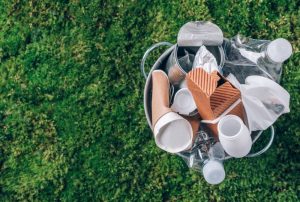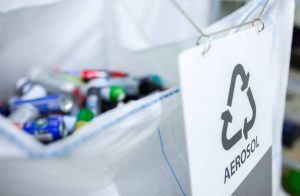Updated: 05/04/2023
Proper recycling of household and business waste is necessary. And the way Australians manage waste is now changing positively. However, there is still a long way to go. For many people, throwing items in the bin is almost like a reflex. There’s no second thought, just throwing away any rubbish they have in their hands. This habit has to stop. It is a known fact that what people throw can impact the environment. However, most individuals don’t know that their rubbish also affects the economy.
Some items may be considered as waste, but they have value, particularly in terms of resources and energy. It’s time that we all do our part to maximise that value. There are a few things that we can do to help, including recycling. With 74 million tonnes of waste produced every year, it’s unfortunate that the country only recycles 60% of that figure. There’s still a lot of work to do. And you can start by consciously knowing what you can and cannot put in the recycling bin.
Things You Can Throw in the Recycling Bin
Communities have a yellow lid bin where households can throw their waste. Homes also have their recycling bin where they can place the items they want to get rid of. But certain things should not be in the container, whether it is your bin at home or the community.
But first, let’s enumerate the things that you are allowed to put in the recycling bin:
- Any paper products, including office paper, newspaper, junk mail, and magazines
- Cardboard
- Glass bottles that are in the following colours: green, brown, and clear
- Jars of the same colours as glass bottles
- Juice cartons
- Milk cartons
- Hard plastic bottles
- Rigid containers, such as yoghurt, takeaway, and ice cream containers
- Steel or tin cans
- Aluminium cans, including beer and soft drink cans
Please bear in mind that there should be no lid when throwing away plastic bottles and containers. Aerosol cans are allowed in Western Australia, but some local councils have stopped accepting these cans. We will discuss this later in the article. Nevertheless, if you’re going to recycle aerosols, make sure that the local council allows recycling of the product. If you can put it in the bin, it should first be emptied before throwing it away.
What You Should NEVER Put in the Bin
Many people are not aware that specific plastic products should never be put in the recycling bin. An example is a plastic lid, which you should throw in your regular bin instead. You’re probably wondering why this is the case when lids are often the same material as the plastic bottles or containers they once belonged with. The reason is that lids are small. Their size is not appropriate for factory sorting machines, so they cannot be picked up.
Lids should also be removed because they stop liquids in bottles or containers from contaminating a load. Although they are not heavy, they do weigh items down, mainly when the recycling facility uses air-powered machines. It is rare but keeping lids can cause explosions. There is a build-up of pressure, which results in the packages breaking and rebounding.
Aside from plastic lids, here are other items that you should never put in the bin, along with other recyclables:
- Polystyrene trays
- Certain types of plastic that can be crunched or squeezed
- Plastic bags containing your recyclables
- Paper coffee cups
- Paper takeaway packaging
- Paper towels
- Napkins
- Pyrex, window glass, and other similar types of glass
- Shredded paper
- Batteries
- Equipment used in IT tasks
- Disposable cutlery
Upon looking at the list above, you may find it confusing when dealing with particular items. For example, plastic containers are allowed to be disposed of and thrown in the recycling bin. However, a type of plastic is not permitted, especially those that you can easily crush. To remind you why it is not allowed, crushable plastic can cause conveyor belts in recycling facilities to malfunction. That means the whole system should be shut down to make sure the plastic is no longer present in that facility.
Some items in the list may surprise you, such as takeaway packaging and paper coffee cups. Many people throw those things away into the bin, even though they do not belong there. They mostly contain wax coatings to keep them intact. As a result, they cannot be recycled. Napkins and paper towels are also unacceptable since they are often contaminated.
Finally, it’s important that you never put shredded paper in the recycling bin. The pieces of paper are so small that they can obstruct conveyor belts. Better uses of these pieces of paper are for packaging and composting.
It’s also worth noting that some items listed above may be recycled using other means. While they should not be placed in recycling bins, you can find initiatives and companies making recycling more accessible. For example, Collins Recycling is where you can drop off batteries, radiators, and other types of waste.
Household Scrap Metal Recycling Items
When considering what to recycle, you should think beyond newspapers and aluminium cans. Household scrap metal is recyclable, and you can receive money from a scrap yard for what may look like junk to you.
Finding scrap metal around your home is easier than most people think. Consider the fact that nearly every metal is recyclable in some way. Every toaster, dinged fry pan, or collection of old electronic devices filling a kitchen drawer can be reclaimed. By doing this, you help keep material out of landfills, and you get the bonus of earning cash for your trouble.
The list of household items that are recyclable scrap metal is vast. Here are a few examples:
- Air conditioners and insulation
- Batteries
- Brass items like door handles, keys, and fixtures from bathrooms and kitchens
- Electric motors
- Food or drink cans or other aluminium items like gutters and window frames
- Microwaves, refrigerators, stove tops, and other white goods
- Old computers
- Steel shelving, chairs, or cabinets
Professionals with experience in scrap metal recycling quickly turn your trash into reusable metal fit for manufacturing other products. After collecting the scrap metal, processors will sort the various materials. The metals are decorated and shredded before being purified by melting and formed into bars that are easy to move to manufacturers.
Six Common Recycling Mistakes
We applaud all efforts made to help our planet by recycling. In Australia, about 55% of recyclables make it to a facility to be reclaimed. Unfortunately, around 86% of packaging is made for reuse. If handled correctly, a portion of the 31% of recyclables in landfills might have gone to a recycling centre. Here are the top six recycling mistakes to help clear up any confusion about how to recycle.
- Not Cleaning Away Food or Debris from Recyclables – If food, grease, or liquids are left on items to be recycled, this can contaminate them. Once this happens, recyclables end up in landfills instead of being turned into reusable products. A quick rinse is usually all that is necessary to make an item recyclable.
- Leaving Boxes Whole – Breaking down cardboard boxes of all sizes is helpful to speed up the recycling process and prevent machine blockages.
- Collecting Recyclables in a Plastic Bag – Plastic bags may be an easy way to round up items in your home or office. However, being thin and lightweight, bags often are caught in machinery. This results in wasted time and costly repairs
- Not Reading the Labels on Packages – Different parts of a package often meet different recycling standards and must be separated before they can be reclaimed. Remembering where the various parts belong can be challenging, so there is a new type of label to make it easier. The Australian Recycling Label shows how to recycle all parts of a package.
- Recycling Plastic Cutlery – This type of plastic is too thin and light to be picked up as plastic. It often ends up in paper recycling.
- Placing Broken Glass with Solid Glass Items – Combining broken and unbroken glass causes problems at recycling centres because the types of glass melt at different temperatures. To safely dispose of broken glass, wrap it in several layers of newspaper and place it with non-recyclables.
All of us need to take care with separating our recycling. It is not always convenient, but the extra few minutes spent carefully sorting materials can be the difference between your recyclables being processed or ending up in a landfill.
Other Things You Can Do to Help Australia’s War on Waste
Whenever you are unsure about anything, especially a recyclable or non-recyclable item, always contact your local council. And if you are thinking about working with a recycling facility, ask them about what they accept, as well. While there are general lists of items that you can and cannot put in the bin, local councils and facilities may have their own rules.
If you have items that are not accepted, don’t worry; there are so many creative ways on how you can recycle and reuse them. You can also find drop-off stations where specific recyclables can be placed in a designated bin.
Aside from the tips given above, here are other things that you can do to make recycling easier:
- When you throw away magazines or stacks of paper, you probably include paperclips and staples. It is not a problem, and you can continue doing so since the paper is still recycled. However, it is an excellent contribution to the recycling industry to get rid of staples and paper clips. It won’t be surprising if it becomes mandatory in the future, especially with quality thresholds tightening even further.
- Bottle tops made of aluminium and steel can be recycled, so don’t throw them away. However, many facilities may not accept them if they are smaller than a business card. Size is vital in sorting facilities because some machines may miss these items and throw them in the landfill instead.
- If you have a small lid made of steel or aluminium, you can still recycle it. However, you should first ensure that it is free from contaminants. Then, look for another container of the same material. For example, if you have a steel bottle lid, you should put it together with a steel can. Ensure that the can is closed properly with the cap inside. That way, magnets of the machines can quickly pick them up, making the sorting process more manageable.
- Clothes are recyclable, but facilities do not accept them because they can clog the machinery. You may want to donate them or turn them into something useful.
Do you have an old microwave, mobile phone, or a printer cartridge? These items are classified as waste, but you don’t have to throw them into the bin. Recycle them with the help of Collins Recycling. Take these recyclables to us, and we will handle the task for you. Plus, you could get paid for dropping it off at our facility or contacting us for a pickup service.
We know it is a great incentive and can genuinely help with the country’s waste problem. Instead of leaving unused, unwanted, and old items lying around, find time to de-clutter. You never know which ones are recyclable until you sort them out. From scrap metal to batteries that you don’t know what to do with, we’ll take care of them for you. Contact us today if you have any questions.







